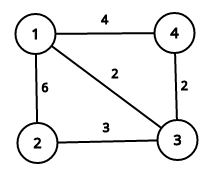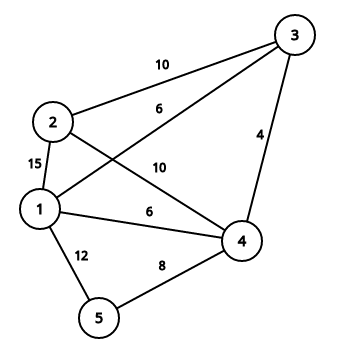Codeforces Round #365 (Div. 2) 703B Mishka and trip 水题
2016-08-05 12:59
639 查看
Mishka and trip
time limit per test
1 second
memory limit per test
256 megabytes
input
standard input
output
standard output
Little Mishka is a great traveller and she visited many countries. After thinking about where to travel this time, she chose XXX — beautiful, but little-known northern country.
Here are some interesting facts about XXX:
XXX consists of n cities, k of
whose (just imagine!) are capital cities.
All of cities in the country are beautiful, but each is beautiful in its own way. Beauty value of i-th city equals to ci.
All the cities are consecutively connected by the roads, including 1-st and n-th
city, forming a cyclic route 1 — 2 — ... — n — 1. Formally, for every 1 ≤ i < n there
is a road between i-th and i + 1-th
city, and another one between 1-st and n-th
city.
Each capital city is connected with each other city directly by the roads. Formally, if city x is a capital city, then for every1 ≤ i ≤ n, i ≠ x,
there is a road between cities x and i.
There is at most one road between any two cities.
Price of passing a road directly depends on beauty values of cities it connects. Thus if there is a road between cities i and j,
price of passing it equals ci·cj.
Mishka started to gather her things for a trip, but didn't still decide which route to follow and thus she asked you to help her determine summary price of passing each of the roads in XXX. Formally,
for every pair of cities a and b (a < b),
such that there is a road between aand b you
are to find sum of products ca·cb.
Will you help her?
Input
The first line of the input contains two integers n and k (3 ≤ n ≤ 100 000, 1 ≤ k ≤ n) —
the number of cities in XXX and the number of capital cities among them.
The second line of the input contains n integers c1, c2, ..., cn (1 ≤ ci ≤ 10 000) —
beauty values of the cities.
The third line of the input contains k distinct integers id1, id2, ..., idk (1 ≤ idi ≤ n) —
indices of capital cities. Indices are given in ascending order.
Output
Print the only integer — summary price of passing each of the roads in XXX.
Examples
input
output
input
output
Note
This image describes first sample case:

It is easy to see that summary price is equal to 17.
This image describes second sample case:

It is easy to see that summary price is equal to 71.
水题。。。但是直接遍历统计会超时。
应该用sum统计所有城市的魅力值之和sum=a[1]+a[2]+。。。。+a[n]
每个首都的值就是(sum-自身魅力值-临近城市魅力值-之前计算过与自身相连的首都的魅力值)*a[t]
需要注意邻近城市也是首都的情况
下面是代码:
#include <iostream>
#include <cstring>
#include <cstdio>
#include <algorithm>
#include <map>
#include <set>
#include <cstdlib>
using namespace std;
long long save[100005];
long long possible[100005];
long long n,k;
long long cmp,sum;
long long capital[100005];
void getsum(long long t,long long &result){
long long r=0,l=0;
if(possible[t+1]==false){
if(t+1>n&&possible[1]==false){
r=save[1];
}else if(possible[t+1]==false){
r=save[t+1];
}
}
if(possible[t-1]==false){
if(t-1<1&&possible
==false){
l=save
;
}else if(possible[t-1]==false){
l=save[t-1];
}
}
result += (sum-save[t]-cmp-r-l)*save[t];
cmp += save[t];
}
int main(){
memset(possible, false, sizeof(possible));
long long i;
scanf("%I64d%I64d",&n,&k);
long long result=0;
save[0]=0;
sum=0;
for(i=1;i<=n;i++){
scanf("%I64d",&save[i]);
sum+=save[i];
result += save[i]*save[i-1];
}
result += save[1]*save
;
cmp=0;
for(i=1;i<=k;i++){
scanf("%I64d",&capital[i]);
possible[capital[i]]=true;
getsum(capital[i], result);
}
printf("%I64d\n",result);
return 0;
}
time limit per test
1 second
memory limit per test
256 megabytes
input
standard input
output
standard output
Little Mishka is a great traveller and she visited many countries. After thinking about where to travel this time, she chose XXX — beautiful, but little-known northern country.
Here are some interesting facts about XXX:
XXX consists of n cities, k of
whose (just imagine!) are capital cities.
All of cities in the country are beautiful, but each is beautiful in its own way. Beauty value of i-th city equals to ci.
All the cities are consecutively connected by the roads, including 1-st and n-th
city, forming a cyclic route 1 — 2 — ... — n — 1. Formally, for every 1 ≤ i < n there
is a road between i-th and i + 1-th
city, and another one between 1-st and n-th
city.
Each capital city is connected with each other city directly by the roads. Formally, if city x is a capital city, then for every1 ≤ i ≤ n, i ≠ x,
there is a road between cities x and i.
There is at most one road between any two cities.
Price of passing a road directly depends on beauty values of cities it connects. Thus if there is a road between cities i and j,
price of passing it equals ci·cj.
Mishka started to gather her things for a trip, but didn't still decide which route to follow and thus she asked you to help her determine summary price of passing each of the roads in XXX. Formally,
for every pair of cities a and b (a < b),
such that there is a road between aand b you
are to find sum of products ca·cb.
Will you help her?
Input
The first line of the input contains two integers n and k (3 ≤ n ≤ 100 000, 1 ≤ k ≤ n) —
the number of cities in XXX and the number of capital cities among them.
The second line of the input contains n integers c1, c2, ..., cn (1 ≤ ci ≤ 10 000) —
beauty values of the cities.
The third line of the input contains k distinct integers id1, id2, ..., idk (1 ≤ idi ≤ n) —
indices of capital cities. Indices are given in ascending order.
Output
Print the only integer — summary price of passing each of the roads in XXX.
Examples
input
4 1 2 3 1 2 3
output
17
input
5 2 3 5 2 2 4 1 4
output
71
Note
This image describes first sample case:

It is easy to see that summary price is equal to 17.
This image describes second sample case:

It is easy to see that summary price is equal to 71.
水题。。。但是直接遍历统计会超时。
应该用sum统计所有城市的魅力值之和sum=a[1]+a[2]+。。。。+a[n]
每个首都的值就是(sum-自身魅力值-临近城市魅力值-之前计算过与自身相连的首都的魅力值)*a[t]
需要注意邻近城市也是首都的情况
下面是代码:
#include <iostream>
#include <cstring>
#include <cstdio>
#include <algorithm>
#include <map>
#include <set>
#include <cstdlib>
using namespace std;
long long save[100005];
long long possible[100005];
long long n,k;
long long cmp,sum;
long long capital[100005];
void getsum(long long t,long long &result){
long long r=0,l=0;
if(possible[t+1]==false){
if(t+1>n&&possible[1]==false){
r=save[1];
}else if(possible[t+1]==false){
r=save[t+1];
}
}
if(possible[t-1]==false){
if(t-1<1&&possible
==false){
l=save
;
}else if(possible[t-1]==false){
l=save[t-1];
}
}
result += (sum-save[t]-cmp-r-l)*save[t];
cmp += save[t];
}
int main(){
memset(possible, false, sizeof(possible));
long long i;
scanf("%I64d%I64d",&n,&k);
long long result=0;
save[0]=0;
sum=0;
for(i=1;i<=n;i++){
scanf("%I64d",&save[i]);
sum+=save[i];
result += save[i]*save[i-1];
}
result += save[1]*save
;
cmp=0;
for(i=1;i<=k;i++){
scanf("%I64d",&capital[i]);
possible[capital[i]]=true;
getsum(capital[i], result);
}
printf("%I64d\n",result);
return 0;
}
相关文章推荐
- 使用C++实现JNI接口需要注意的事项
- 关于指针的一些事情
- c++ primer 第五版 笔记前言
- share_ptr的几个注意点
- Lua中调用C++函数示例
- Lua教程(一):在C++中嵌入Lua脚本
- Lua教程(二):C++和Lua相互传递数据示例
- C++联合体转换成C#结构的实现方法
- C++高级程序员成长之路
- C++编写简单的打靶游戏
- C++ 自定义控件的移植问题
- C++变位词问题分析
- C/C++数据对齐详细解析
- C++基于栈实现铁轨问题
- C++中引用的使用总结
- 使用Lua来扩展C++程序的方法
- C++中调用Lua函数实例
- Lua和C++的通信流程代码实例
- C++的template模板中class与typename关键字的区别分析
- C与C++之间相互调用实例方法讲解
